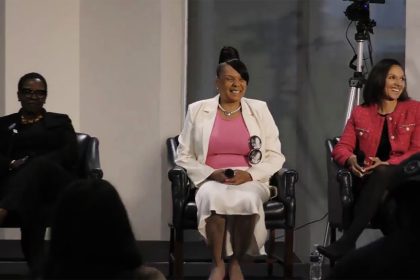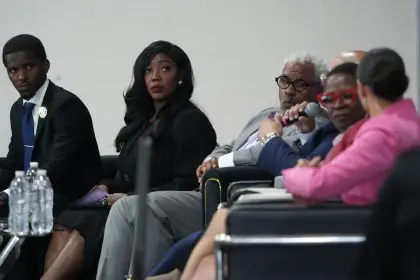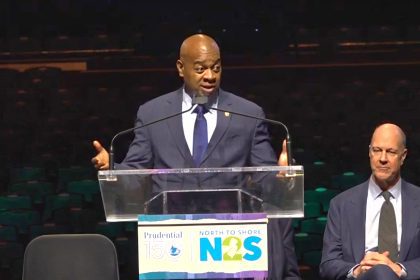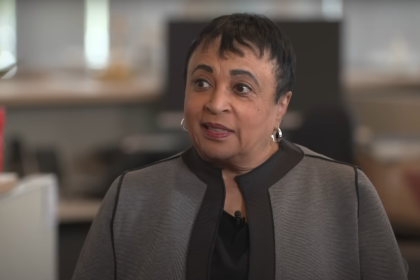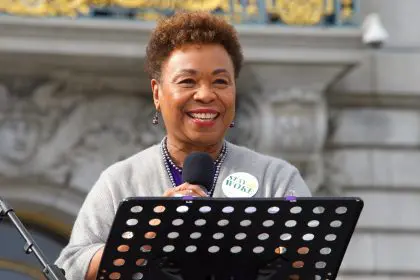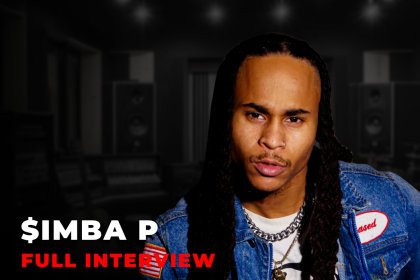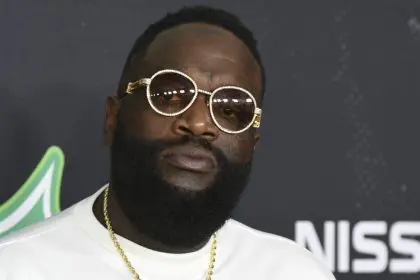Charles V. Taylor Jr., a Morehouse graduate and the esteemed executive director of the Mississippi State Conference NAACP, is a difference-maker at the polls in the same state that produced Medgar Evers, a giant of the Civil Rights Movement that only an assassin’s bullet could slow down. It didn’t stop his work, because the spirit of the movement now rests upon Taylor, whose role and influence is much like what Evers held more than six decades ago.
The stakes are just as high, if not higher, than when Evers was silenced. Given the bare-knuckles, no-holds-barred approach that Republicans have taken toward turning the clock back on Blacks’ hard-won political gains, it will take those as invested in the fight as Taylor to continue the march forward.
In 2o12, he led over 29,000 African Americans to vote in Mississippi and has been a force to be reckoned with ever since. Because 2024 is such a crucial election year for America, Taylor is moving heaven and earth — and even more than a few people outside the Magnolia State — to get up, to get out, to get to the polls and to bring about change — because it won’t fall in our laps.
This exemplary force for change spent time with rolling out, outlining why this such a pivotal moment in the country’s history and how it could influence the next half-century.
Munson Steed: Who was Medgar Evers to those who understand why we should be voting and still be in the movement?
Charles Taylor: [We] first have to talk about what [the NAACP is]. The NAACP is the National Association for the Advancement of Colored People. Just a few days ago, we celebrated 115 years of fighting for Black folks, 115 years of fighting for the rights of Black folks, [rights of all people, civil rights,] and civil liberties. As you think about that, that was 1909. 1918 was the first chapter in the state of Vicksburg, Mississippi. We’re celebrating 106 years of being in this state. But our state conference itself was formed in 1945. The chapters came together and decided we needed to have state representation.
If you fast forward about 10 [years], you had Medgar Evers, who came in as the first field secretary for the Mississippi State Conference. I serve as executive director, [a] role akin to the one he had over 60 years ago. Medgar Evers is one of the most prominent names in Mississippi, most prominent names when it comes to the NAACP and especially the Civil Rights Movement. If you can imagine [conversing] with him [years ago], he would likely say something [about the power of the vote]. One of his most famous quotes is “Our only hope is to control the vote.” As he was a part of the NAACP, it represented us as our first field secretary for the state of Mississippi, which means he ran the staff here. He was a man who was of conviction.
He applied to Ole Miss law school back in the 50s. He was denied but was the first African American to apply to Ole Miss Law School and the University of Mississippi Law School. He’s an Alcorn State University graduate, [as is] his lovely wife, Myrlie Evers, who is still with us. She is in her early 90s and just an incredible woman. As I sit in this seat and think about who Medgar Evers is, I also think about [his impact] on young people. It was controversial at the time to have young folks in the movement, and these individuals are now in their late 70s and early 80s. But back in the early 60s, as a freedom fighter, he [ushered] young people into the movement, recognizing that as a part of this movement, we all were part of a continuum.
MS: Why would you choose such a role and vote for those who are underrepresented?
CT: It’s one of those interesting things because [this] role chose me. [In] high school, I was a part of a group called the Civil Rights Civil Liberties Club. The NAACP office is [right] next to Jackson State’s campus, and on the other side of the campus is the high school I graduated from. We were high school students who wanted to [discuss] things that we couldn’t [discuss] in the classroom. At that time, I was just a curious young man who loved his people and was always concerned about what it looked like to have a conversation about civil rights and the present as we reflected on the civil rights era.
If you had told me I would be in this position today, I wouldn’t have believed you. I thought I may go to Morehouse, and then after Morehouse, I’d go off to be a lawyer or something of the sort. Politics was always [of interest to] me. Being in the private sector was always interesting, but this work is a calling. I thank God because I think I’m in the right place. I don’t think there’s any other job where I would feel as rewarded, and I just really feel fortunate to kind of sit at this intersection between community organizing and the work I did previously, which was political data management. If you’re doing the work, and if what you’re trying to do is to help people, you will be successful at it. This work is taxing and stressful, but it’s rewarding and God’s work. I’m just fortunate to be a part of it.
MS: What would you say about the power of the vote?
CT: We [often] talk about voting, and we may think there’s this apathetic movement around voting. When I look at individuals who don’t vote, [often] it’s the issue of access. You take a state like Mississippi; we have some of the lowest participation rates across the country. At first glance, you may say to yourself that it’s a state where civil rights leaders like Medgar Evers and many others fought and died and gave their lives to this. Why would that be the highest participation rate? [I’ll say] that Mississippi has more Black elected officials than any other state because folks understand the importance of organizing and organizing politically.
As I look at individuals who may not have voted in the last election, or sometimes we may call sporadic or infrequent voters, I think about the access. I think about it from that perspective for this reason. In Mississippi, there is no early voting, same-day registration, or online registration. It is a very difficult state to vote in. Election day is typically the second Tuesday of the month. You have the polls open there from 7 a.m. to 7 p.m. A typical person in Mississippi works. Eight of those 12 hours are already gone. Now we’re down to four hours, and within those four hours, you either prepare breakfast, prepare children for school, etc., or you prepare dinner, do homework, and so a lot can happen in the day. We got to look at, one, expanding the access to the ballot, and two, the investment into the elector. If you’re someone that we would call a super voter, which means you have a high propensity to vote, the majority of the money in an election [will] be spent on those individuals. But we have to invest in the electorate of those who may be sporadic or frequent because those are the individuals who need that type of investment. Let’s talk to them about the issues. Let’s connect the dots of civic engagement and governance. Let’s talk about how your vote matters. Let’s explain to them the process. This is a year-round thing.
You’re allowed for campaigns to amplify that message, but organizations like the NAACP [must] work on this year-round, and we have to invest in that piece of the electorate. When you see that type of investment, you see high voter turnout. You think about 2020; even during a pandemic, we had the highest propensity election in our modern history. [However], it also had the highest investment into the electorate voters because folks understood that that election [would] be historical. I want people to recognize that the election of 2024 is just as important, if not more important, than the one in 2020 because what happens this November will truly decide some things for the next 50 years. It is going to be a focal moment.
MS: Why is this moment going to impact our freedom?
CT: If you think about the justices that the last President was able to elect, I want to say he put three justices on the bench.Twenty years ago, a Black man and a Black woman had more rights in this country than they do now. It may not seem that way, but if we look at it 20 years ago, women had more rights than now. If you look at Roe v. Wade, that said women had the right to have an abortion because that was privacy between them and their doctor. You’re talking about 50 years of precedent, 50 years of law just gone in a minute, because you elected a particular person to office in 2016, and they were able to put certain folks on the Supreme Court. If the election in 2016 had gone differently, Roe v. Wade would likely still be law. If elections had gone differently before, in many ways, the Voting Rights Act, section two and section five, [would] have been completely gutted. In places like Mississippi, because of the historic and systemic racism that happened, before you can make changes, the Justice Department had to say you can change this, you can move this person, you could do this and do that. We don’t have that anymore, and they get to do whatever they want.
Some people say things like, “My vote doesn’t matter.” Your vote doesn’t matter, but here’s where they say the system is rigged. The system is not rigged when you go to the ballot box. The system is rigged when [creating the district, which happens] every 10 years. After the census, as you know, we go through the redistricting process. If you can ask yourself how [it is] that we live in a country where the majority of folks may be in one particular party, but another party is in control, that’s because of gerrymandering. That’s because they create these boundaries that make sure that one party, actually the minority party, is in control. When you go to the courts, and you say, “Wait a minute, this is not right, this is unjust, particularly this kind of gerrymander was racially biased, etc.,” if you have a court that was appointed by a certain president of a certain party, you know how this is gonna go. When I talk about the next 50 years, I’m thinking about the Supreme Court in many ways. I’m thinking about the likelihood of the next President, or whoever’s President in 2024 to 2028, being able to appoint additional justices. That [will] sway or solidify the balance of power between political parties on the bench. You literally could be talking about laws that have been in place for 50 years or 100 years being dissipated or eradicated, and that’s the danger of it all.
The thing about this country is that it has a dark history; it also has a rich history. African Americans and many other folks have fought for a lot of years and a lot of legal battles for us to get to this place, only for one or two people to be able to change the course of history. My grandchildren’s lives [will] be on the ballot this November, and I’m not saying that to scare you; I’m not saying that to be dramatic; I’m just being honest about where we are in this country and the point in our democracy.
MS: Why have you chosen or elected to educate around the term of advocacy?
CT: The National NAACP and its state area conferences will have advocacy days [nationwide]. [That] means we will [talk] to our legislators at our state capitals. In Mississippi, on Feb. 27, we will be at the state capitol. It’s probably going to be between 200 and 300 members who show up and talk to our legislators and tell them the legislative priorities of the NAACP. You have one particular party that has a supermajority in both houses in Mississippi. [Still, I’m] reminded of the quote from Zora Neale Hurston: “If we’re silent about our pain, they’ll kill you and say you enjoyed it.” The NAACP is going to show up on the 27th to say that we’re not silent, to show up on the 27th to talk about things like Medicaid expansion. Mississippi is one of the nine states in the country that still has not expanded Medicaid, even though we’re one of the poorest states and health care is one of our largest issues. If we expand Medicaid, somewhere in the neighborhood of 233,000 people will receive health care and be eligible for health care that’s currently not. In a state like Mississippi, where our rural hospitals are dying and where it is very difficult to get health care, it’s a very poor state; it’s dire and necessary. We should have been the first state to expand Medicaid. I’m hopeful and confident that we might have something to shake up this year. We have a new speaker in the house who has spoken out and said he wants to support this. Our lieutenant governor just announced that he will have some version of a Medicaid expansion bill. We’ll be fighting for that. We also will be fighting different issues, such as school choice. They allow that if you are a public-school child, you can choose to go to a different district and take the money with you.


